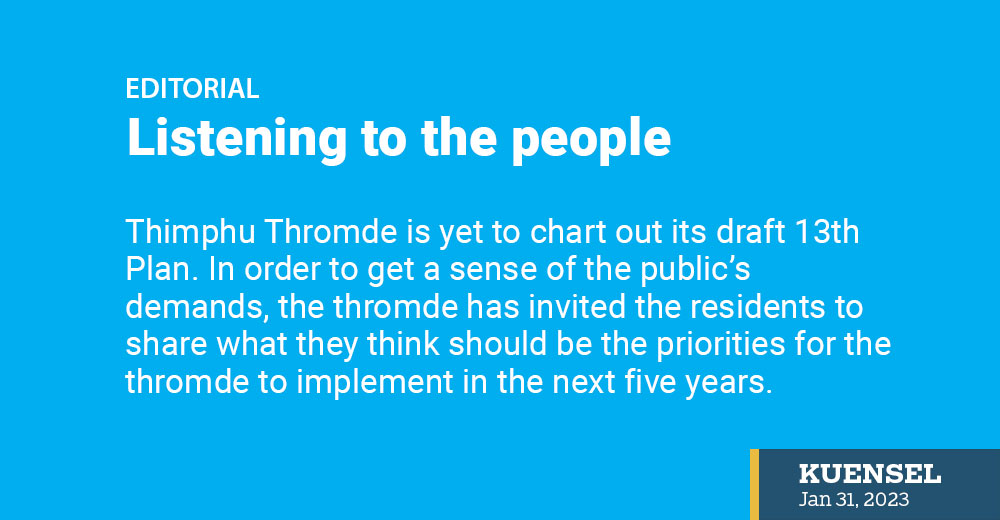Thimphu Thromde is yet to chart out its draft 13th Plan. In order to get a sense of the public’s demands, the thromde has invited the residents to share what they think should be the priorities for the thromde to implement in the next five years.
This is a good move by the thromde to indicate that they want to hear from the more than 120,000 residents on how the office can help to make their lives and livelihoods better. Because, otherwise, the residents do not have a proper platform to share their views and feedback with the thromde.
Knowing what they want is a good start but accommodating them in the actual plan and working on them will be what would ultimately prove that thromde is serious about solving the problems of its residents.
The problems listed existed much before the election of the first thrompon and they still persist. All this time the residents have been venting out about the water scarcity problems, the issues related to waste management, residential parking, open public spaces, public library, and many more. Of course, our public transport system, and waste collection have improved by much.
With the elections drawing closer, there are many aspiring candidates venturing into the villages too to listen to the needs of the people. The question is – is it only during the time of drafting a plan or elections that our leaders or those in power want to listen to the ordinary citizens?
Decentralisation over the years saw a new level of transparency and discussions which went beyond official rhetoric to issues and constraints. Officials are thrashing out their prioritisation of sectors and activities, making plans more realistic and relevant.
One of the repeated flaws in implementation has been the poor coordination among various government organisations. The ministries have been reformed to ensure such problems do not recur. Despite the structural changes, if those in the offices do not change their mindset the whole exercise could come to nought.
We have the past as an example for the future. Bhutan has had the good fortune of having enlightened leaders who provided clear overall leadership. Yet many decisions like the choice of roads and bridges or the location of schools and hospitals and a number of policies could be traced back to the interests of senior officials, even department heads.
The advantage of our system and approaching elections is that these decisions will be more transparent and the people themselves will at least have the opportunity to influence them. So a more relevant question is, do we have the ability to make good decisions?


